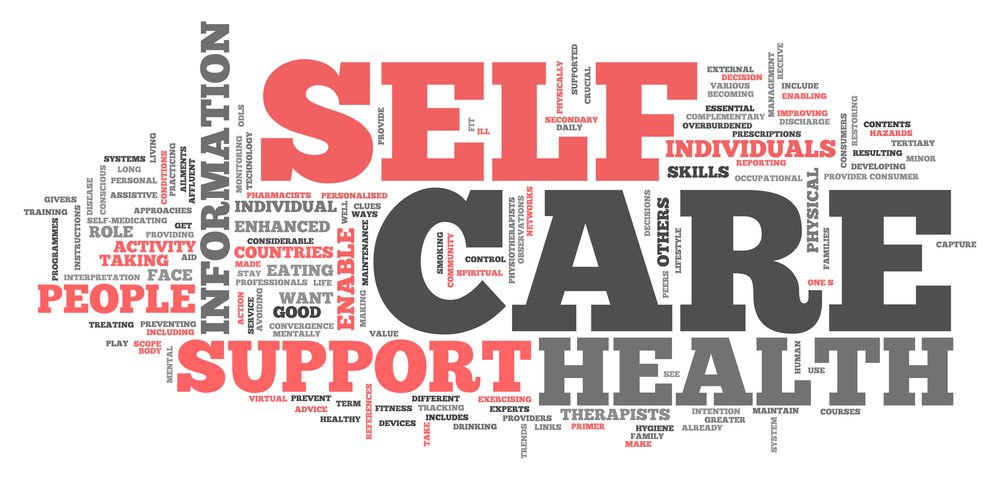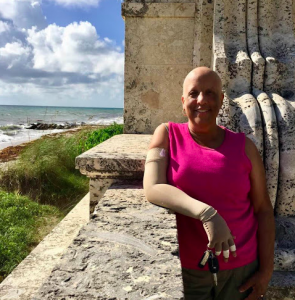My Sister’s Breast Cancer Diagnosis Taught Us an Important Lesson About Caregiving
Written by |

October is Breast Cancer Awareness Month, but what does that have to do with Alzheimer’s disease and caregiving? Nothing, except that women make up the majority of caregivers in the United States. This means that over 60 percent of caregivers are susceptible to breast cancer.
Breast cancer hits home
My sister, Ruth, was the picture of health. She and I had been sharing primary caregiving duties for our mom for several years when she discovered a lump in her breast. She was sure that the lump was nothing to worry about, as she’d just had a clear mammogram. However, as it turned out, the lump was a tumor, not a glitch.
On the day she received a breast cancer diagnosis, her biggest concern was how we would continue to care for our mom together.
Ruth told me, “The only concern I have is mom. How will we care for mom?”
She broke the news to me over the phone. I did my best to reassure her and encourage her to concentrate on one thing: getting better. My family and I would take on full caregiving responsibilities so that my sister could focus on her treatment. I meant it, but even as the words left my lips, I wondered how we would manage.
I wasn’t worried about balancing care for mom without my sister, though I knew it would be an adjustment. My greatest fear was that I couldn’t be there for both of them at the same time. How would I care for mom and still be available for my sister in the weeks and months ahead?
Apart from dementia, our mother enjoyed good health. However, she was spared having to witness her eldest daughter’s breast cancer fight. My sister was diagnosed in February, and our dear mother passed from this life a few weeks later.
While we were sad, we also recognized her passing as a merciful gift. She didn’t suffer and wouldn’t see the valiant, but difficult battle my sister would fight — and eventually win. She endured a long year of chemotherapy treatments and surgery, followed by a slow bounce back to health. We were grateful that she had a full recovery.
The moral of the story
Familial caregivers tend to pay more attention to their loved one’s health than to their own. If my sister hadn’t kept up with regular checkups and mammograms, and conducted self-breast exams, her story may have had a different outcome. And, perhaps, mine would have had an alternative ending, too. Five years later, I was diagnosed with the same type of breast cancer. Both of us discovered a lump in our breast by self-examination.
Diagnosis is a better alternative
Please do not ignore the signs of illness. Don’t wait until symptoms appear before visiting a doctor. Yearly checkups and mammograms are essential for early detection. Self-examinations are also crucial.
Caregivers worry that a health scare will affect their responsibilities to their loved ones and sometimes fail to investigate their concerns due to the fear of a poor diagnosis. They think, “If I’m sick who will care for my loved one?”
My sister and I had each other; one of us could cover for the other. Most caregivers don’t have that option. An early diagnosis gives you the best chance of survival. A better question for a caregiver to ask is: “If I’m not diagnosed in time and die anyway, who will take care of my loved one?”
Wearing pink during October is one way to bring awareness to breast cancer. Move forward and follow through. Don’t make caregiving your excuse for failing to get a mammogram or conduct self-breast exams. Taking action could save your life.
***
Note: Alzheimer’s News Today is strictly a news and information website about the disease. It does not provide medical advice, diagnosis, or treatment. This content is not intended to be a substitute for professional medical advice, diagnosis, or treatment. Always seek the advice of your physician or other qualified health provider with any questions you may have regarding a medical condition. Never disregard professional medical advice or delay in seeking it because of something you have read on this website. The opinions expressed in this column are not those of Alzheimer’s News Today or its parent company, Bionews Services, and are intended to spark discussion about issues pertaining to Alzheimer’s Disease.







Leave a comment
Fill in the required fields to post. Your email address will not be published.